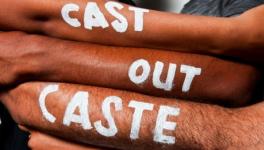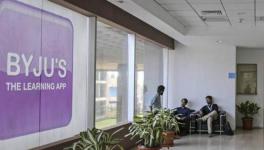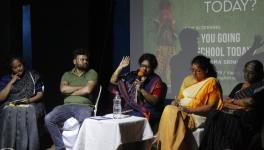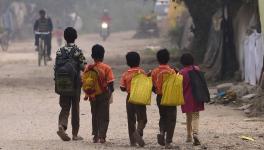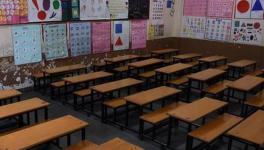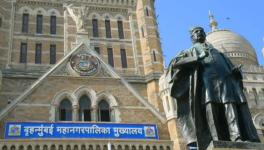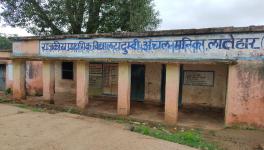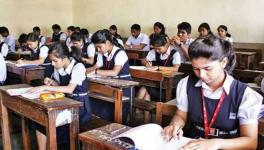39% Parents Paid Hiked Fees to Private Schools During Lockdown: Survey
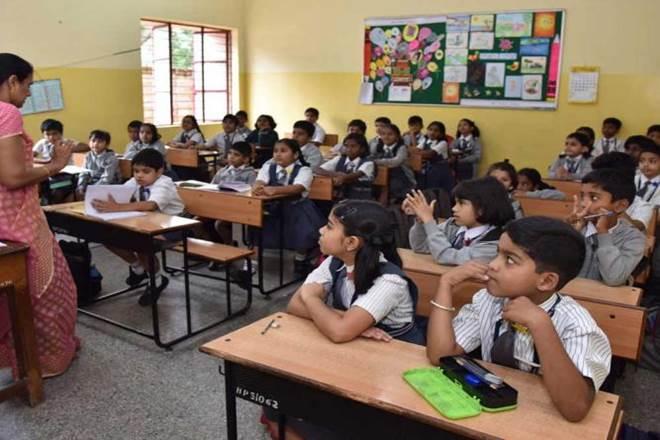
Image Courtesy: PTI
Over 39% of parents of children studying in private schools in five states have reported having to pay hiked fees for the ongoing academic year, which has been affected by the coronavirus pandemic, according to a new survey by Oxfam India.
With the intention of understanding the impact of the pandemic on access to education, modes of education delivery and access to entitlements in both government and private schools, Oxfam India carried out a rapid assessment that surveyed close to 1,200 parents and 500 teachers across Odisha, Bihar, Jharkhand, Chhattisgarh and Uttar Pradesh.
Of the states involved in the survey, Bihar, Chhattisgarh, Jharkhand and Uttar Pradesh issued notifications directing schools to not hike their fees or pressurise parents in making fee payments during the lockdown. Odisha issued an appeal from the chief minister’s office requesting schools to consider reducing or deferring payment of fees. Despite the notifications and pleas from the state governments, parents were forced to pay hiked fees. In the case of Uttar Pradesh and Odisha, over 50% parents had to pay hiked fees. While UP had issued guidelines preventing fee hikes, Odisha had not. Despite this, a significant percentage of parents in both states had to pay increased fees.
The report said, “This highlights the need for development as well as stronger enforcement of private school regulation to protect the rights of parents, particularly during a time where over 80% households have suffered a loss in income.” In states (UP, Bihar, Jharkhand and Chhattisgarh) that had issued a clear notification directing schools to not pressurise parents to pay fees, only 8% parents reported being pressured by the school through constant reminders and messages. However, in Odisha where no clear guidelines were issued, 35% parents reported being pressured by the school to make fee payments during the lockdown, according to the Oxfam survey.
At a time when all schools were closed, 15% parents were still charged fees for uniforms. While UP, Jharkhand and Chhattisgarh had issued notifications directing schools to not hike their fees, there was no clarity about whether schools could charge fees other than the tuition fee. Around 8% parents of students in these states reported being charged fees for uniforms. However, in Odisha, where no guidelines were issued, close to 50% parents reported collection of fees for uniforms despite protests and demands by the Odisha Abhibhabak Mahasangha (Odisha Parents Association) for waiver of these charges, indicating the need for clear guidelines and regulation by the state government to protect the rights of parents.
The survey pointed out that close to 60% children in private schools have suffered an interruption in education delivery due to school closure. In cases where education was ‘delivered’, WhatsApp was the dominant medium— reported by 57% parents, followed by YouTube, Zoom and phone conversations between the teacher and the student (22% each). The report said, “Thus, children in only a fifth of the households experienced some form of structured teaching while the vast majority simply received resources or instructions via WhatsApp, YouTube, and phone calls. Despite this, “39% parents reported fee hikes by schools, almost twice the percentage of parents that reported a structured form of education delivery during the pandemic.”
The study reinforced the fact that private schools are not inclusive spaces since boys are more likely to be enrolled there than girls. The assessment sought to find who gets sent to private schools, in families with both sons and daughters. While 76% families reported sending both their son and daughter to private schools, 16% families send only their son and 8% families send only their daughter. Thus, sons are more likely to be sent to private schools.
In cases where education was ‘delivered’, the dominant use of WhatsApp highlights that the focus was more on information dissemination than teaching. In the absence of low-tech, inclusive modes of education delivery, over 80% parents struggled in supporting their children to access education digitally, with internet speed and signal proving to be the biggest hindrances.
Get the latest reports & analysis with people's perspective on Protests, movements & deep analytical videos, discussions of the current affairs in your Telegram app. Subscribe to NewsClick's Telegram channel & get Real-Time updates on stories, as they get published on our website.









